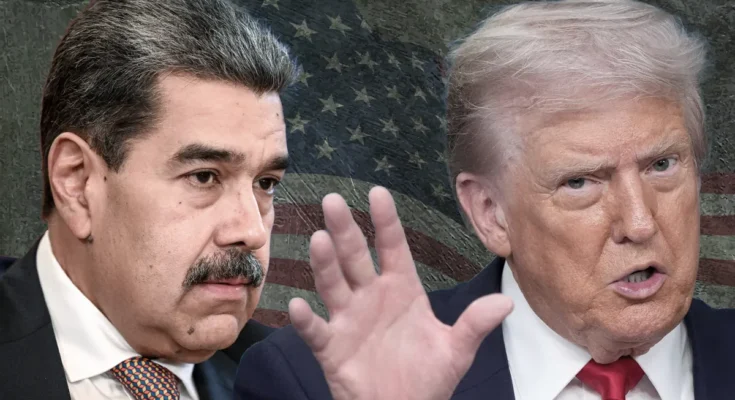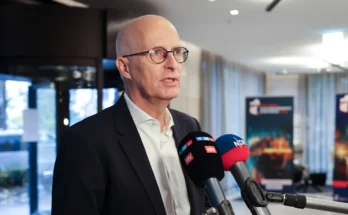This also happens because illegal groups on the Colombian border plant the bushes and then process the leaves in Venezuela. The mostly green Colombia-Venezuela border is about 2,200 kilometers long. The area is difficult for security authorities to police, making it easier for illegal groups to smuggle drugs – and the Venezuelan state appears to facilitate the trade through corruption.
This is where the Cartel de los Soles comes into play. However, according to “Insight Crime,” this is not a hierarchical cartel in the classic sense. Rather, it is a network of state and military actors. The name is borrowed from the sun on the shoulder boards of Venezuelan generals. Those involved in open transport corridors in exchange for bribes because they control ports or airports. President Nicolas Maduro should take advantage of this system.
According to the report, Maduro is building his power base in this network. It said: “It is impossible for Maduro to know about any particular cocaine transaction, let alone be personally involved in it.” US allegations against Maduro that he is a cartel boss appear unlikely.
But he and his regime “opened the door” to the drug trade by controlling who had access to drug transactions, writes Insight Crime. For Maduro, this is about securing political loyalty. In short: Anyone who makes a lot of money selling cocaine has no interest in overthrowing the system that benefits them. Ultimately, Maduro wants to maintain his power.
This is motivated by the precarious economic situation in Venezuela. With the largest oil reserves in the world, this country should be a rich country. However, Venezuelan oil is a heavy type of oil that requires a lot of effort to extract and process. However, corruption that has occurred for decades has caused the infrastructure to be neglected. Additionally, there is one of the toughest sanctions regimes in the world, which makes trade even more difficult for the country.
Therefore, Venezuela is on the verge of bankruptcy and illegal businesses are still keeping the regime afloat. “Whether it’s ensuring Venezuela’s army earns enough money to feed itself; buying the loyalty of corrupt political leaders; or motivating armed groups to defend the regime, drug money can do it,” Insight Crime said. According to the non-governmental organization Transparancia Venezuela, drug trafficking revenues in the country are expected to reach more than $8.2 billion by 2024.
However, the report did not answer how much of the drug was brought to America from Venezuela. Smuggling into Europe also played an important role. The fact that US authorities such as the DEA do not list Venezuela as an important country of origin is at least an indication that the importance of the South American country as a whole may be much smaller than Trump often claims.
However, widespread smuggling in several countries also suggests that destroying suspected drug vessels in the Caribbean may not stop drug imports into America.



